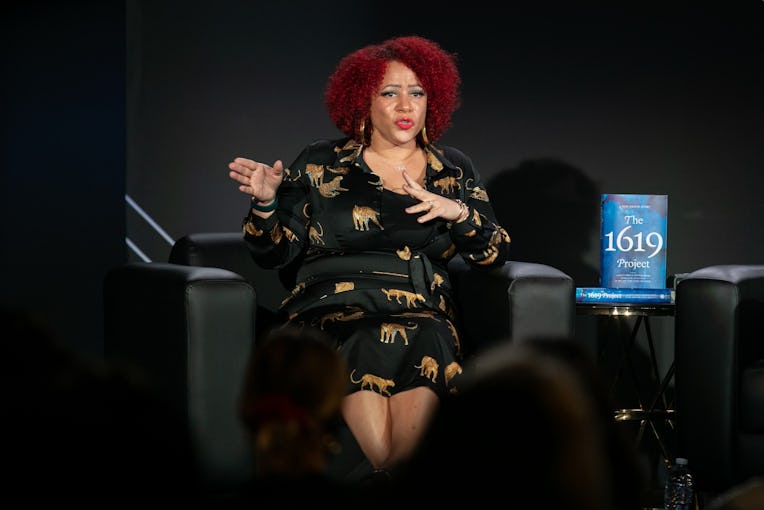Nikole Hannah-Jones Did Not Like New Yorker Review of the 1619 Project
We support media being more openly hostile

There are few things more boring and sinister, but in a boring way, than warm critical consensus. For one, it stifles the critical project (if a book gets universally rave reviews, why read more than one? They’ll boil down to the same directive: buy it). But mostly, it telegraphs a broader laziness on the part of the professional readers or watchers or whoever is getting paid to type up their take.
There are, obviously, those singular books that many people find affecting and log on their Goodreads with five stars. That’s kind of beside the point for the critic, whose job is not to signal a simple thumbs up, so much as to wrestle with the source material and find somewhere in its various successes or failures the space to make a new argument, one that should occasionally, if not always, diverge from the writer’s own. Easy for me to say; I’ve never written a book. New York Times Magazine writer Nikole Hannah-Jones has, however, and she evidently disagrees:
This subtweet, which I can only hope inaugurates a robust literary rivalry between America’s top mags, concerned a recent piece in the New Yorker. The Dec. 8 article from Lauren Michele Jackson, “The 1619 Project and The Demands of Public History,” took up Hannah-Jones’ titular project, rolled out in The New York Times Magazine over the summer of 2019 and since turned into a book. The project, comprised of “eleven essays, nine poems, eight works of short fiction, and dozens of photographs,” set out to document and narrativize the influence of American slavery, and the contributions of those exploited under it, dating back to the first arrival of enslaved Africans in 1619.
That broader literary goal has been marred somewhat by several historical quibbles — that slavery was “one of the primary reasons the colonists decided to declare their independence from Britain,” for example, or that Black Americans fought for freedom “alone.” On the right, these debates have been weaponized both to undermine the project outright, and turn it into a bogeyman for the nebulous threat of Critical Race Theory; among liberals, they have not slowed the procession of several prestigious awards — including a Pulitzer Prize in Commentary for Hannah-Jones, and a spot among the N.Y.U. Journalism Institute’s top 10 works of journalism that decade.
Jackson’s critique of the recent book endeavors to find a less hyperbolic middle ground, assessing the subtler claims without flattening the mission into partisan symbolism. Her primary complaint lies in what she thinks the book ends up flattening, in its effort to smooth the messy fragments of a 400-year history into magazine-friendly narrative. But Jackson argues this pretty judiciously — balancing her case with the outsized conservative outrage, the argument’s precedent in both academia and arts, and the Times’ attempt to address some of its factual concerns. A bit rich to sum it up as professional jealousy.
One could read this as juvenile, for Hannah-Jones, one of the most famous, successful, and well-respected journalists in America, to subtweet a writer for critiquing a work that has already won the top awards in nonfiction and will surely go on to sell hundreds of thousands of copies. But media needs more beefs. Back before digital advertising took a gut punch to the publishing industry — when there was enough money in media for each mid-size town to have, not only its own paper, but two or three — in-fighting was commonplace, even useful. An intra-media feud can function like a judicious takedown; it keeps everyone on their toes.